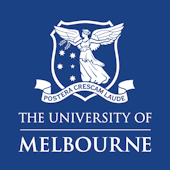Senior Lecturer in Psychology, The University of Melbourne
Genevieve is a practicing clinical neuropsychologist in the Epilepsy program at The Alfred Hospital in Melbourne, and senior lecturer in clinical neuropsychology at The University of Melbourne. As a clinician-scientist, she balances her clinical and academic work with her role as a senior research fellow in a world-leading epilepsy research genetics group at the Epilepsy Genetics Research Program. Her program of research aims to explore the neurobiological and psychosocial underpinnings of mood and cognitive disorders in epilepsy and other neurological conditions, using behavioural, neuroimaging, and genetics methodologies.
Experience
-
2017–presentSenior Lecturer Psychology, The University of Melbourne
-
2018–presentSenior Clinical Neuropsychologist, The Alfred Hospital
Education
-
2015The University of Melbourne, PhD
-
2013The University of Melbourne, Masters of Clinical Neuropsychology
-
2008The University of Melbourne, BA (Hons)
Publications
-
2016Cognition-related brain networks underpin the symptomotology of unipolar depression: evidence from a systematic review, Neuroscience and Biobehavioural Reviews
-
2016The role of epilepsy surgery, Neuropsychiatric symptoms in epilepsy
-
2016MRI-negative Temporal Lobe Epilepsy: a network disorder of neocortical connectivity., Neurology
-
2016Two distinct symptom-based phenotypes of depression in epilepsy yield specific clinical and etiological insights, Epilepsy & Behavior
-
2016Mechanisms of memory impairment in epilepsy depend on age at disease onset, Neurology
-
2015Self-identity and autobiographic memory in epilepsy, Epilepsia
-
2015Behavioural profiles in frontal lobe epilepsy: Autobiographic memory versus mood impairment, Epilepsia
-
2012Psychiatric care in epilepsy surgery: who needs it?, Epilepsy Currents
-
2012Intersecting factors lead to absolute pitch acquisition that is maintained in a "fixed do" environment", Music Perception
-
2012Developmental outcomes of childhood-onset temporal lobe epilepsy: a community-based study, Epilepsia
-
2011Profiling the evolution of depression after epilepsy surgery, Epilepsia
-
2010Differential contributions of objective memory and mood to subjective memory complaints in refractory focal epilepsy, Epilepsy & Behavior
Grants and Contracts
-
2024Developmental and Epileptic Encephalopathies - a novel treatment for behavioural and mental health problems
- Role:
- CIB
- Funding Source:
- 2023 MRFF Clinician Researchers - Applied Research in Health
-
2023A comparative effectiveness trial of digital mental health care models for adults with epilepsy.
- Role:
- CIF
- Funding Source:
- 2023 MRFF Clinical Trials Activity Grant
-
2022Phenotyping Neurobehavioural Disorders in People with Epilepsy
- Role:
- CIA
- Funding Source:
- National Medical and Health Research Council (NHMRC) 2022 EL1 Investigator Grant
-
2020Phenotyping Depression and Anxiety in Epilepsy
- Role:
- CIA
- Funding Source:
- MRFF Australian Epilepsy Research Fund
Professional Memberships
- Epilepsy Society of Australia
- Clinical Neuropsychologist, Psychology Board of Australia, Australian Health Practitioner Regulation Agency, No. PSY0001129526
- International Neuropsychology Society
Research Areas
- Biological Psychology (Neuropsychology, Psychopharmacology, Physiological Psychology) (170101)
- Neurocognitive Patterns And Neural Networks (170205)
- Neurology And Neuromuscular Diseases (110904)
- Melbourne, Australia
- Website
- Article Feed
- 90357045
-
For media enquiries,
raynerg@unimelb.edu.au - ORCID
- Joined


